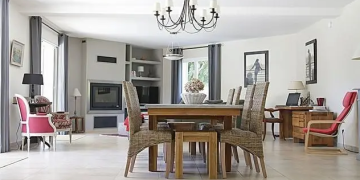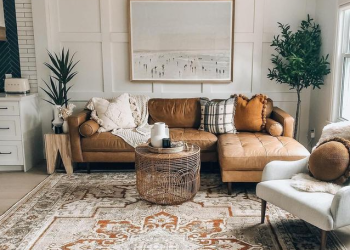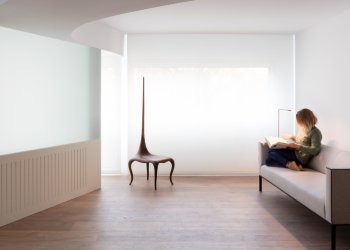In today’s fast-paced world, maintaining a tidy and organized workspace is essential for productivity and peace of mind. A clutter-free environment can help you stay focused, reduce stress, and maximize efficiency. In this guide, we’ll explore effective strategies for decluttering your home office and creating an environment that promotes productivity and well-being.
Introduction
A cluttered workspace can be a major hindrance to productivity and creativity. The accumulation of physical and digital clutter can overwhelm your senses and impede your ability to focus. By implementing organizational tips and decluttering techniques, you can transform your home office into a functional and inspiring space where you can thrive.
Benefits of Decluttering
Decluttering your workspace offers numerous benefits beyond just aesthetics. A tidy environment can increase productivity by minimizing distractions and streamlining workflow. Additionally, it can reduce feelings of stress and anxiety, allowing you to work more efficiently and effectively.
Assessing Your Workspace
Before diving into decluttering, take some time to assess your workspace. Identify clutter hotspots and areas where organization is lacking. Evaluate the layout of your office and consider how it impacts your workflow and accessibility.
Decluttering Techniques
When decluttering your home office, it’s helpful to break the process down into manageable steps. Start by sorting items into categories such as “keep,” “donate,” and “discard.” Consider implementing the KonMari method, which involves keeping only items that spark joy and discarding the rest.
Maximizing Storage Solutions
Effective storage solutions are key to maintaining a clutter-free workspace. Make use of vertical space by installing shelves or wall-mounted organizers. Invest in multifunctional furniture, such as desks with built-in storage or filing cabinets that double as seating.
Digital Decluttering
In addition to physical clutter, it’s important to declutter your digital workspace as well. Organize files and folders on your computer to make them easier to find and access. Develop a system for managing email and digital documents to prevent digital clutter from accumulating.
Maintaining a Tidy Environment
Once you’ve decluttered your home office, it’s important to establish habits that will help you maintain a tidy environment. Take a few minutes at the end of each day to tidy up your workspace and put things back in their designated places. Schedule regular decluttering sessions to prevent clutter from accumulating over time.
Creating a Productive Environment
A tidy workspace is not only functional but also inspiring. Personalize your home office with elements that motivate and inspire you, such as photos, artwork, or plants. Incorporate elements of nature, such as natural light or indoor plants, to create a calming and productive environment.
Overcoming Common Challenges
Decluttering can be challenging, especially when it comes to dealing with sentimental items or breaking old habits. Be patient with yourself and recognize that decluttering is a process. Find ways to let go of items that no longer serve you and prevent clutter from reaccumulating in the future.
Sustainable Decluttering Practices
When decluttering your home office, consider the environmental impact of your actions. Donate or recycle items that you no longer need instead of sending them to the landfill. Adopt a minimalist mindset and focus on acquiring only the things that truly add value to your life.
Measuring Success
As you declutter your home office, track your progress and celebrate your achievements. Notice improvements in your productivity and overall satisfaction with your workspace. Reflect on how decluttering has positively impacted your work and well-being.
Conclusion
In conclusion, decluttering your home office is a powerful way to enhance productivity, reduce stress, and create a workspace that supports your goals and aspirations. By implementing the organizational tips and decluttering techniques outlined in this guide, you can transform your home office into a clutter-free environment where you can thrive.
FAQs After The Conclusion
- How often should I declutter my home office?
- It depends on your personal preferences and habits, but scheduling regular decluttering sessions, such as once a month or every few months, can help prevent clutter from accumulating.
- What should I do with items that I no longer need or want?
- Consider donating them to charity, recycling them if possible, or selling them online. Avoid throwing them away if they can still be used by someone else.
- How can I prevent clutter from accumulating in the future?
- Establishing daily tidying habits, being mindful of what you bring into your home office, and regularly reassessing your belongings can help prevent clutter from reaccumulating.
- Is it better to declutter gradually or all at once?
- It depends on your preferences and the amount of clutter you have. Some people prefer to tackle decluttering in small increments, while others prefer to do a complete overhaul all at once.
- What should I do if I have trouble letting go of sentimental items?
- Consider taking photos of sentimental items before letting them go, or find ways to repurpose or display them in a way that brings you joy without cluttering your workspace.
- How can I maintain a balance between personalizing my workspace and keeping it clutter-free?
- Choose meaningful items to display in your workspace and avoid overcrowding your desk or walls. Rotate items regularly to keep your workspace fresh and inspiring.
- Are there any professional organizing services that can help with decluttering?
- Yes, there are many professional organizers who specialize in helping people declutter and organize their homes and offices. Consider hiring a professional if you feel overwhelmed or unsure where to start.
- What are some signs that my home office needs decluttering?
- Signs that your home office may need decluttering include feeling overwhelmed or stressed when you enter the space, struggling to find things you need, or feeling like you’re constantly surrounded by clutter.


















